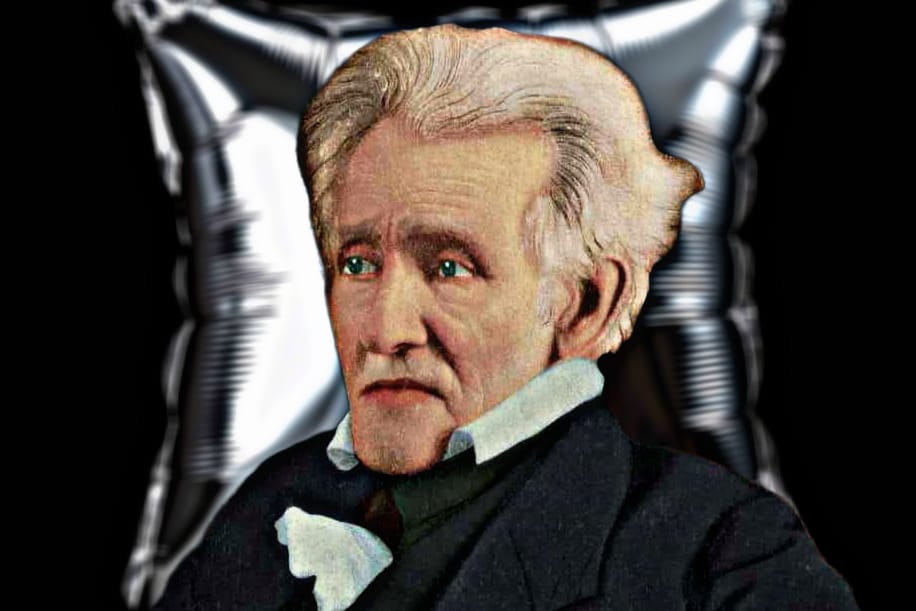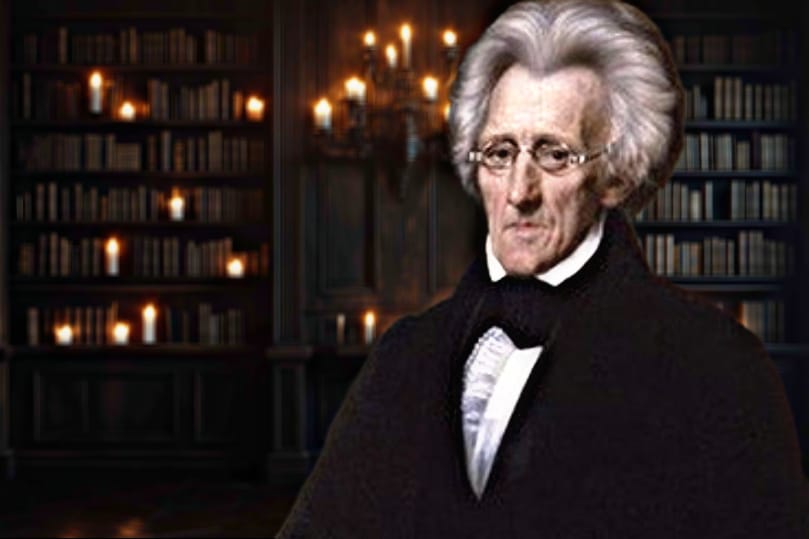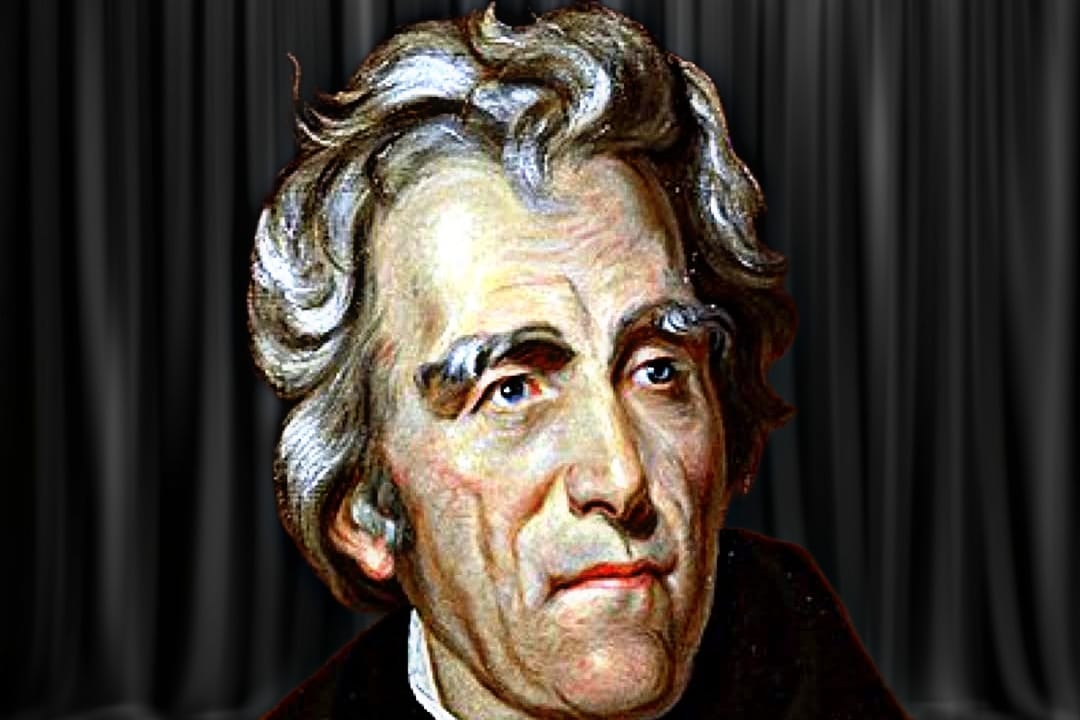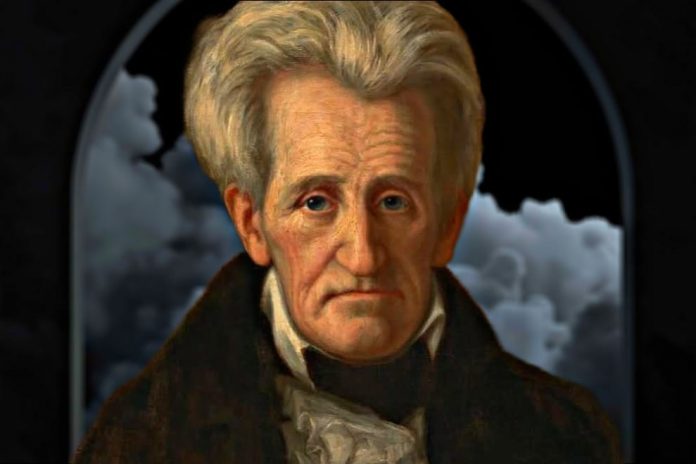Andrew Jackson, the seventh President of the United States (1829-1837), was one of the most influential and polarizing figures in American history. A man of fierce conviction, military heroism, and complex political views, Jackson left an indelible mark on the nation’s political, social, and economic landscape. Known for his populist appeal, strong leadership, and unyielding personality, Jackson transformed the American presidency and played a central role in defining the trajectory of the United States during the 19th century. This article explores the life, career, policies, and legacy of President Andrew Jackson, providing a comprehensive look at the man who remains both revered and reviled.
Early Life of Andrew Jackson
Andrew Jackson was born on March 15, 1767, in a log cabin in the Carolinas, near the border of North and South Carolina, into a poor Scots-Irish family. His father, Andrew Jackson Sr., died just a few weeks before Andrew Jackson was born, leaving his mother, Elizabeth, to raise him and his brothers. Jackson’s early life was marked by hardship, as his family struggled to survive in the wild, frontier conditions of the American South.
At the age of 13, during the American Revolutionary War, Andrew Jackson and his brothers joined a local militia. During the war, Jackson’s mother and brothers died, and the young Jackson was taken prisoner by the British. His experiences during this tumultuous period—marked by death, suffering, and resilience—shaped Andrew Jackson character and his future political career. These formative years instilled in him a deep sense of defiance, resilience, and a lifelong distrust of authority.
The Path to Military Fame: Andrew Jackson as a Hero

Andrew Jackson rise to prominence began in the military. In the early 19th century, he served in the U.S. Army and became a major general during the War of 1812, particularly famous for his victory at the Battle of New Orleans in 1815. This victory was a crucial moment in American history, as it solidified Jackson’s reputation as a national hero and a defender of American sovereignty.
Andrew Jackson military career was marked by aggressive tactics and a fierce determination to win. He became known as “Old Hickory” for his toughness and unyielding leadership style. The Battle of New Orleans, fought after the peace treaty had been signed but before the news reached the frontlines, was a resounding success that made Jackson a national figure and a symbol of American strength and independence. His leadership during this battle turned him into a national icon and set the stage for his future political career.
From Hero to Politician: Andrew Jackson Rise to the Presidency
Following his military success, Andrew Jackson entered the political arena. He served as the U.S. Senator from Tennessee and later as the state’s representative. However, it was his controversial role in the 1824 presidential election that began to define his political legacy.
In the election of 1824, Jackson ran against John Quincy Adams, Henry Clay, and William Crawford. Although Jackson won a plurality of the popular vote and electoral votes, he did not secure a majority. The election was ultimately decided by the House of Representatives, where Speaker of the House Henry Clay threw his support behind John Quincy Adams. Adams won the presidency, and Andrew Jackson supporters cried foul, accusing Clay and Adams of a “corrupt bargain” to deny Jackson the presidency. This event significantly shaped Jackson’s political philosophy, igniting his populist rhetoric and positioning him as a champion of the common people against the political elite.
In the 1828 presidential election, Andrew Jackson populist appeal was undeniable. He ran on a platform of reform, challenging the political establishment and advocating for greater democracy, especially for white male citizens who had previously been disenfranchised. Jackson won in a landslide, and his victory was seen as a triumph of the common man over the aristocracy.
Andrew Jackson Presidency: Key Policies and Controversies

Andrew Jackson presidency was one of the most transformative periods in American history, marked by bold actions and significant controversies. Andrew Jackson reshaped the role of the presidency and introduced policies that would have lasting effects on the country. His administration was characterized by strong leadership, decisive actions, and a willingness to confront entrenched political institutions.
The Jacksonian Democracy
Andrew Jackson presidency is often associated with the rise of Jacksonian democracy, a political movement that sought to expand democratic participation and reduce the power of established elites. Jackson believed in a strong executive branch and argued that the president should act as the direct representative of the people. His presidency emphasized the expansion of voting rights for white men, which increased political participation among the common populace and solidified Andrew Jackson reputation as a champion of the average citizen.
While Andrew Jackson expansion of democracy was significant for many white males, it should be noted that it excluded African Americans, Native Americans, and women. Despite his populist appeal, Andrew Jackson presidency was also marked by actions that disenfranchised and oppressed these groups, which has led to significant criticism of his legacy in modern times.
The Indian Removal Act
Perhaps one of the most controversial aspects of Andrew Jackson presidency was his policy toward Native Americans. Jackson believed that the relocation of Native American tribes to lands west of the Mississippi River was essential for the economic development of the United States. In 1830, Andrew Jackson signed the Indian Removal Act, which authorized the forced removal of Native American tribes from their ancestral lands in the Southeast to lands in present-day Oklahoma, known as the Indian Territory.
This policy resulted in the infamous Trail of Tears, during which thousands of Native Americans died from disease, exposure, and malnutrition as they were forcibly relocated. While Andrew Jackson and his supporters argued that the removal was necessary for the survival of the Native American tribes, it is widely regarded as an act of ethnic cleansing and a stain on Jackson’s legacy.
The Nullification Crisis

Another significant event during Andrew Jackson presidency was the Nullification Crisis of 1832-1833. This crisis arose when South Carolina, led by John C. Calhoun, declared that they could nullify federal laws they deemed unconstitutional, particularly the tariffs imposed by the federal government. Calhoun and other Southern leaders argued that the tariffs were unfairly harmful to the South’s economy and violated states’ rights.
Andrew Jackson vehemently opposed this stance, declaring that the Union must be preserved at all costs. He was willing to use military force to enforce federal authority, and his strong stance led to a compromise that averted war but reinforced the supremacy of the federal government over individual states. This event highlighted Jackson’s belief in a strong union and his unwavering commitment to preserving the nation.
The Bank War
Andrew Jackson conflict with the Second Bank of the United States, known as the Bank War, was another defining aspect of his presidency. Jackson believed that the Bank was a corrupt institution that favored the wealthy elite and undermined the interests of ordinary Americans. In 1832, he vetoed the rechartering of the Bank, and in a bold move, he withdrew federal deposits from the institution, effectively weakening its power.
Andrew Jackson opposition to the Bank was rooted in his belief that the institution had too much control over the economy and that it concentrated power in the hands of the few. This action was highly controversial, and although it had long-term consequences for the U.S. economy, it solidified Jackson’s position as a populist leader who was willing to challenge the established economic order.
Andrew Jackson Legacy: A Polarizing Figure
Andrew Jackson legacy is a matter of intense debate. On one hand, he is credited with democratizing American politics and expanding the power of the presidency. His vision of the United States as a nation of common men, rather than an aristocratic elite, helped shape the direction of American democracy. Andrew Jackson democracy, with its emphasis on universal white male suffrage, was a significant step toward the expansion of political rights.
On the other hand, Andrew Jackson policies towards Native Americans, African Americans, and his authoritarian leadership style have made him a deeply controversial figure. His forced removal of Native American tribes and the Trail of Tears are among the darkest chapters of his presidency. Jackson’s role in promoting slavery, his disregard for Native American sovereignty, and his authoritarian tendencies have led many to question whether he should be celebrated as a democratic hero or condemned for his actions.
In modern times, Andrew Jackson legacy continues to be debated. Some historians and scholars argue that his populist approach and his commitment to the common man were essential in shaping the future of American democracy. Others see his policies as morally indefensible and argue that he is a symbol of the nation’s darker history.
Conclusion: The Enduring Impact of Andrew Jackson
Andrew Jackson remains one of the most influential and controversial figures in American history. His presidency marked a turning point in the development of the United States, as he reshaped the presidency, the political landscape, and the relationship between the federal government and the states. Andrew Jackson populist appeal, strong leadership, and willingness to challenge established institutions left a lasting legacy on American political culture.
At the same time, his treatment of Native Americans, his authoritarian tendencies, and his role in the expansion of slavery have led to a reassessment of his place in history. While Andrew Jackson policies and actions continue to spark debate, his impact on the United States is undeniable, and his legacy will continue to be a topic of discussion for generations to come.

